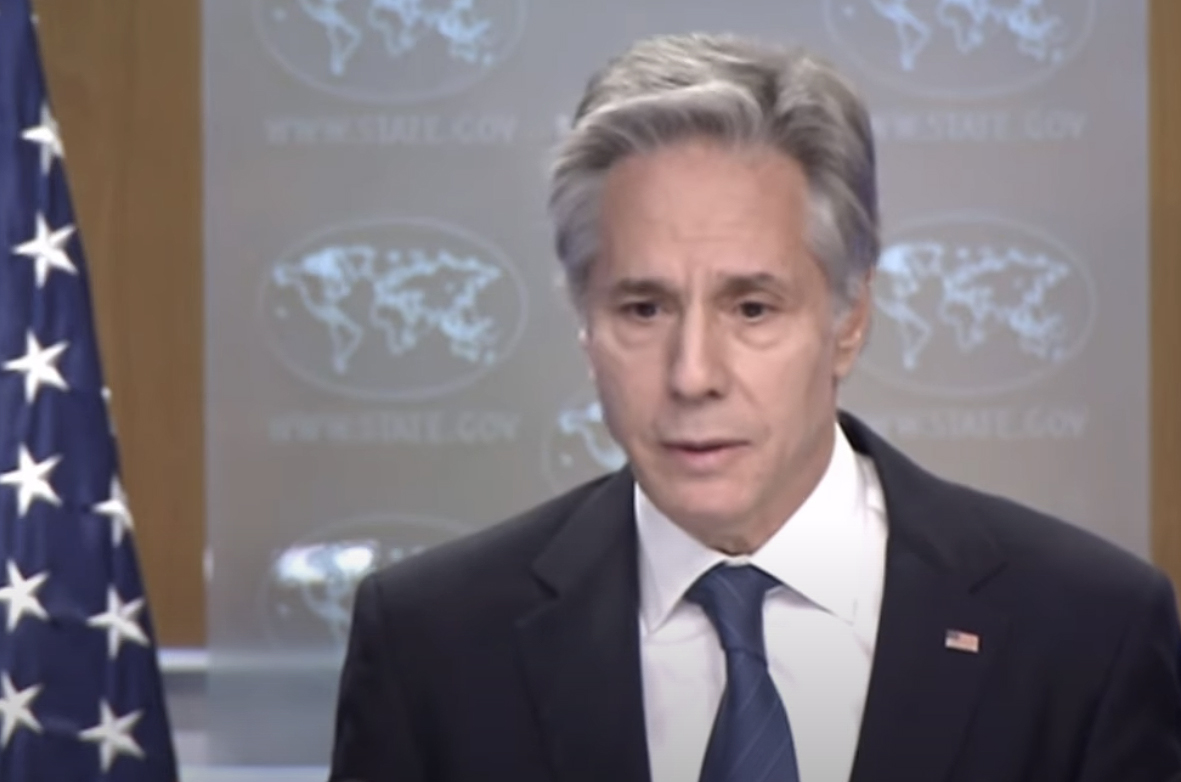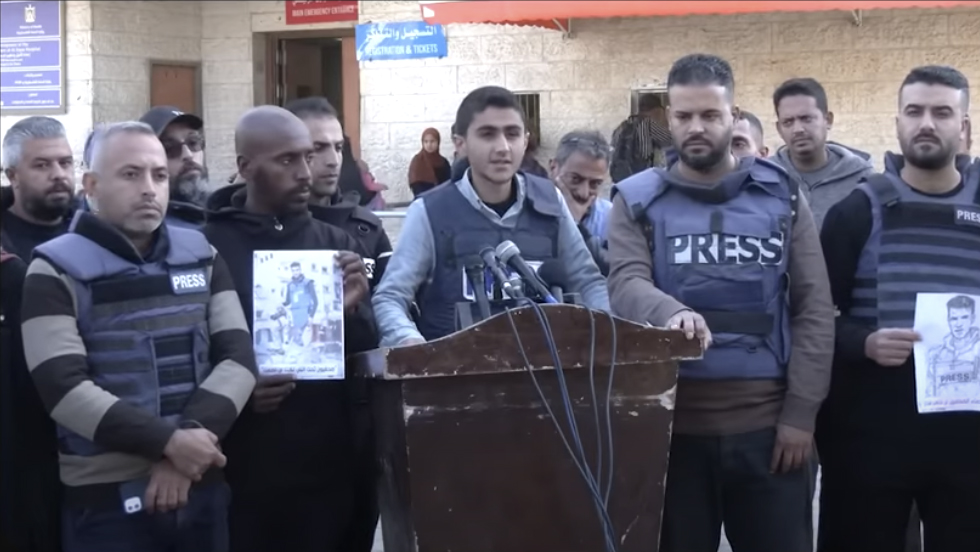Outgoing U.S. Secretary of State Antony Blinken’s final press briefing descended into chaos when two vocal critics interrupted the proceedings to accuse him of complicity in the genocide in Gaza, before being forcibly removed from the briefing room by security personnel.
The disruptions came just hours after Blinken delivered remarks highlighting his efforts in negotiating a ceasefire deal in the Gaza conflict. While most of the journalists in attendance remained seated, two independent reporters—Max Blumenthal of The Grayzone and Sam Husseini—repeatedly interjected with heated statements and questions.
Accusations and Interruptions
Max Blumenthal:
Blumenthal interrupted Blinken as the Secretary of State discussed the recently brokered ceasefire. He accused Blinken of having facilitated the continued transfer of weapons to Israel during the Gaza conflict, alleging that these weapons contributed to civilian deaths and the targeting of journalists in the region. Blumenthal insisted that a ceasefire could have been reached sooner, claiming there was a deal in May that was ignored by U.S. officials.
Sam Husseini:
Shortly after Blumenthal was removed, Husseini attempted to address Blinken directly, asserting that the Secretary of State should be investigated in The Hague for war crimes. He also condemned officials for not allowing reporters to ask open questions, suggesting a lack of transparency on U.S. policy regarding the Gaza conflict. When Husseini persisted in calling for answers, security personnel intervened and escorted him out of the room.
Response from State Department
Blinken, who was accompanied by State Department spokesperson Matthew Miller, initially indicated that all reporters would have the opportunity to ask questions. However, the event soon escalated as the two reporters refused to wait for the designated Q&A session. Miller was seen signaling to security personnel, who then stepped in to remove Husseini after his repeated attempts to confront Blinken.
Blinken did not directly address the accusations of “war crimes” or “genocide” in the moment. Later, in remarks to another outlet, he reiterated that the U.S. faces unique challenges in evaluating potential international law violations in Gaza, citing the complex conditions on the ground, including Hamas’s embedded positions in civilian areas.
Media Reaction and Aftermath
Most of the other journalists present did not intervene while security staff escorted Blumenthal and Husseini out. Critics on social media questioned the lack of solidarity among the press corps, whereas others pointed to protocol and respect for the structured Q&A format. Neither Blumenthal nor Husseini was given an opportunity to return to the room.
In subsequent interviews, Blinken maintained that the U.S. had taken diplomatic steps to reduce harm to civilians. He also reiterated that any determination of possible war crimes—by any party—would require thorough investigation.
Broader Context and Ongoing Debates
This incident capped Blinken’s tenure amid heightened scrutiny of U.S. foreign policy in the Middle East. Some activists and organizations accuse the United States of enabling Israeli military operations in Gaza, while others defend the administration’s stance, arguing it sought to balance Israel’s security interests with humanitarian obligations.
As the Biden-Harris administration concludes and new leadership prepares to take office, questions remain regarding how U.S. policy in the region might evolve. Meanwhile, the charged confrontation at Blinken’s final briefing highlights the deep divisions and intense emotions surrounding America’s role in the Israeli-Palestinian conflict.




